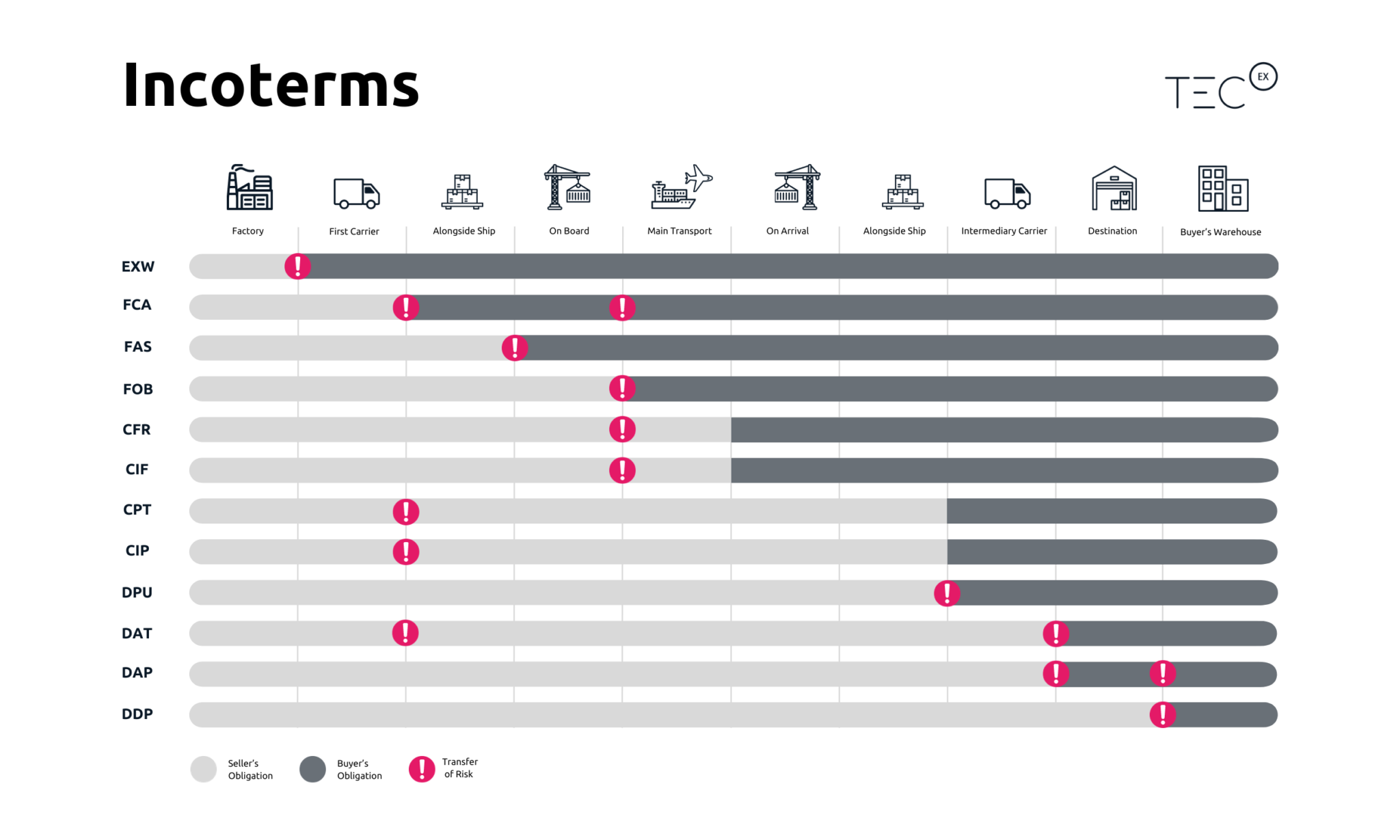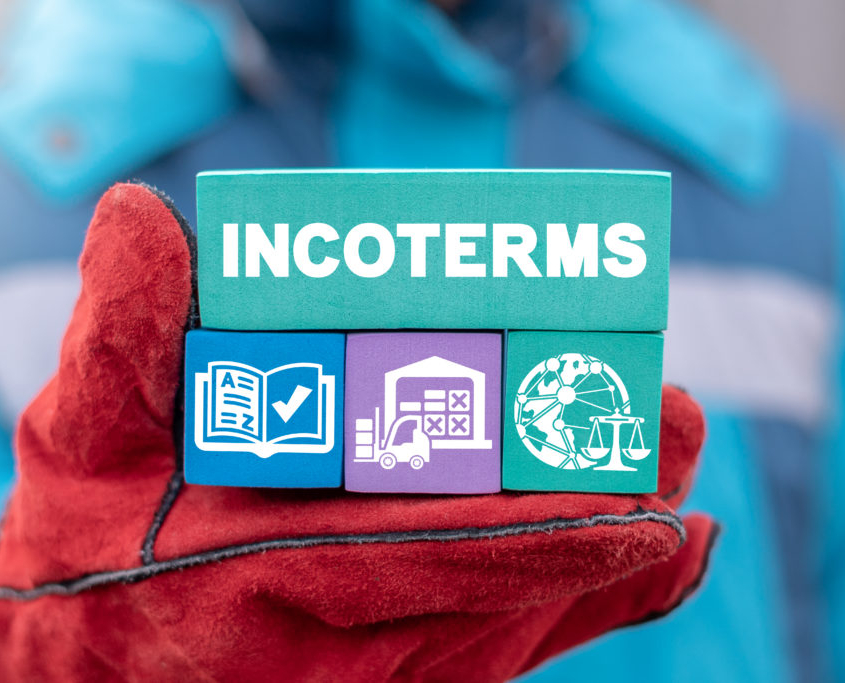It is important to note that incoterms are updated every 10 years. It is therefore recommended that Incoterms 2020 be used in international trade.
Understanding incoterms is imperative for importing and exporting goods. Incoterms define the responsibility of buyers and sellers throughout the shipping process.
Use our simple guide to understand what the incoterm definitions mean and why they are important for global trade.

What are Incoterms?
First of all, you need to understand what an incoterm is and what they are used for.
Incoterms are international commercial terms used within trade contracts for importing and exporting goods. Having a standardized set of contract terms allows for responsibility and liability to be apportioned during the shipping process.
There are 11 incoterms in total. Each term offers specific guidance, clarifying the tasks, costs, and risks to buyers and sellers within the transaction. Incoterms are essential to ensuring the terms agreed are clear and understandable by all parties in the sale.
The main responsibilities incoterms address are:
- Point of delivery – the terms at which goods are exchanged from seller to buyer
- Transportation of goods – who is responsible for the payment of transportation fees?
- Export and import formalities – who ensures that all the necessary documents and tasks have been carried out before export/import?
- Insurance – who is responsible for insurance costs?
When used within purchase orders, sales contracts, or other trade documents, incoterms are legally binding.

Incoterms for Any Mode of Transport
- EXW: Ex Works – the seller makes goods available at their location so that the buyer takes over all transportation costs, responsibility, and risk of taking goods to their final destination.
- FCA: Free Carrier – the seller assumes all responsibility of the goods until delivered to a named carrier. Responsibility and risk then passes to the buyer when the carrier is in possession of the goods.
- CPT: Carriage Paid To – the seller is responsible for the goods, and the risks and costs associated, until delivered to an agreed-upon destination.
- CIP: Carriage and Insurance Paid To – the seller is responsible for the transportation of goods, as well as the cost of carriage and insurance for goods until delivered to a named destination point, but risk passes over on delivery to the first carrier.
- DAP: Delivered at Place – the seller is responsible for the transportation of goods, costs and risks associated with delivering goods to a specific location. Responsibility transfers to the buyer when the goods are available to be unloaded. Import custom clearance and all import duties are the responsibility of the importer.
- DPU: Delivered at Place Unloaded – the seller is responsible for the carriage, costs, and risks associated with the delivery and unloading of goods to a specific location. The importer is responsible for import custom clearance and import duties.
- DDP: Delivered Duty Paid – the seller assumes all responsibility and risk for the delivery of goods to a named location including transportation, costs and customs clearance and import duties.
Incoterm FAQs
What Do Incoterms Not Cover?
Incoterms are used to apportion responsibility and risk during the shipping of goods. They do not cover all conditions of a sale.
They do not:
- Identify the goods included in the sale
- Determine the contract price
- Dictate the method and timing of payment
- Specify when ownership of the goods transfers from seller to buyer
- Detail the necessary documents required to facilitate customs clearance
- Denote liability for failure to provide goods as described or delayed delivery
- Offer dispute resolution mechanisms
Which Incoterm Should I Use?
Deciding which incoterm to use will depend on a variety of factors. In most cases, it is a negotiation between the seller and the buyer. It will be influenced by how much responsibility each party is comfortable with, costs, familiarity with customs processes, and trading partner experience.
It could also be influenced by external factors such as transport providers, insurance companies, banks, and customs brokers. For example, a seller or buyer may have links with a certain transport provider meaning they want to take responsibility for the transportation of goods.
Where Can I Find More Information About Incoterms 2020?
To find out more about Incoterms 2020, visit the ICC website.
We can also offer expert advice for the import and export of goods. We provide end-to-end Delivered Duty Paid (DDP) shipping solution allowing you to transfer all risk and responsibility to us.
When will Incoterms 2020 Next be Revised?
Incoterms are generally updated every 10 years. The latest set of Incoterms was published in 2020 meaning that the next scheduled update is in 2030.
